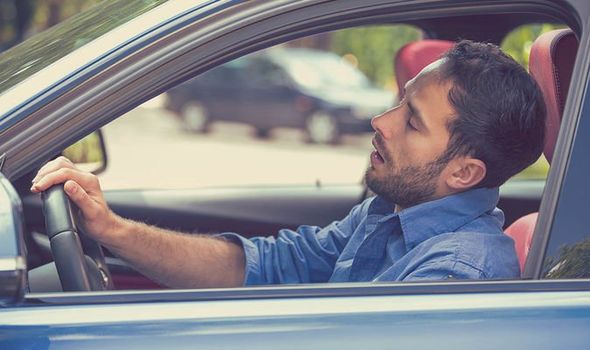Sometimes, circumstances may lead individuals to sleep in their cars. Whether it’s due to financial constraints, long road trips, or unexpected situations, the need for a place to sleep in your vehicle can arise. Pennsylvania’s laws regarding car sleeping, however, can be complex and sometimes unclear. This article will discuss the legality of sleeping in your car in the state, along with safety tips and alternative options.
Legal Considerations
- DUI Laws and Implications
One of the main legal concerns surrounding car sleeping in Pennsylvania is the potential for a DUI (Driving Under the Influence) charge. Even if you’re not actively driving, Pennsylvania law allows for a DUI arrest if you have the keys in the ignition while intoxicated – even if the engine is off. This means sleeping in your car after consuming alcohol could put you at risk. If you intend to sleep in your car, it’s crucial to avoid any alcohol consumption.
- Public vs. Private Property
Where you decide to park and sleep in your car will significantly impact the legality of your situation. The general rule is that you can sleep in your car on your own private property without legal repercussions. However, parking and sleeping in your car on public property becomes more complicated.
Public property can include streets, parking lots, and rest areas. While there isn’t an outright ban on sleeping in your car in these spaces, it may violate local ordinances prohibiting loitering, vagrancy, or overnight parking.
- Local Ordinances and Restrictions
It’s essential to be aware that cities, towns, and municipalities within Pennsylvania may have their own ordinances and restrictions regarding sleeping in vehicles. These ordinances can vary greatly, so it’s crucial to research the specific regulations of the areas you’ll be parking in before spending the night in your car.
Safety Tips for Sleeping in Your Car
If you find yourself needing to sleep in your car in Pennsylvania, prioritizing your safety is essential. Here are a few vital safety tips:
- Choosing a Safe Location: Look for well-lit areas that aren’t isolated. If possible, consider parking near a business that is open 24 hours. Avoid secluded areas or places with limited visibility.
- Parking Strategies: Park discreetly and inconspicuously to avoid drawing attention. Consider backing into a parking spot for a quicker exit if the need arises.
- Maintaining Ventilation and Temperature Control: Crack a window slightly to allow for airflow while preventing someone from easily reaching in. Be mindful of the weather – you may need to find ways to stay warm or cool depending on the season.
- Self-Defense Awareness: While very unlikely to be needed, stay aware of your surroundings. Have a simple plan in case you feel threatened, including knowing how to quickly start your car and leave the area if necessary.
Practical Advice
- How to Prepare Your Car: Ensure your car is well-maintained for dependability. Keep blankets, pillows, and a change of clothes handy.
- Strategies for Staying Discreet: Use window shades or coverings to keep the car’s interior out of sight. Keep the inside of your vehicle tidy to avoid drawing suspicion.
- Tips to Minimize Disruption: Be respectful of окружающие you by keeping noise to a minimum and maintaining cleanliness. Avoid running your engine for extended periods.
Alternatives to Car Sleeping in Pennsylvania
While sleeping in your car can be a solution in a pinch, it’s important to be aware of safer and more comfortable alternatives in Pennsylvania:
- Rest Areas: Pennsylvania has designated rest areas along major highways that allow for overnight parking. However, note that they may have time limits and restrictions on sleeping in your vehicle.
- Campgrounds: Pennsylvania is home to numerous state parks and private campgrounds. Many of these offer affordable and secure places to sleep, sometimes with amenities like showers and restrooms.
- Shelters and Resources: If you are experiencing housing instability or hardship, consider reaching out to local shelters or community organizations. These resources may provide temporary lodging or additional support services.
Conclusion
Sleeping in your car in Pennsylvania should be considered a last resort due to the potential legal complexities and safety risks. When faced with the need, planning and awareness are crucial for minimizing legal problems and protecting your well-being.
Here are some additional points to keep in mind:
- Be Respectful: If you find yourself sleeping in your car in a neighborhood or parking lot, be courteous of residents and businesses. Leave no trace behind, keeping the area clean and being mindful of noise.
- If Approached by Authorities: In the event that you are approached by law enforcement, remain calm and cooperative. Explain your situation respectfully and avoid any actions that could be misinterpreted.
- Seek Alternatives When Possible: Whenever possible, utilize the safer and more regulated alternatives like rest areas, campgrounds, or shelters over sleeping in your car on public property.
Sources
- Pittsburgh DUI Lawyer: Sleeping in Your Car While Drunk in Pennsylvania: https://www.pittsburgh-dui-lawyer.com/blog/sleeping-in-your-car-while-drunk-in-pennsylvania-what-you-must-know/
- Ciccarelli Law Offices: The Truth About Sleeping in Your Car and DUI Charges in Pennsylvania: https://www.ciccarelli.com/the-truth-about-sleeping-in-your-car-and-dui-charges-in-pennsylvania/
- Reddit Discussion: Where can I legally sleep in my vehicle? – Pittsburgh: https://www.reddit.com/r/pittsburgh/comments/xfauea/where_can_i_legally_sleep_in_my_vehicle/
- DubsLabs: Sleeping in the Car– How to Stay Legal and Safe: https://dubslabs.com/blog/sleeping-in-the-car-how-to-stay-legal-and-safe-/
Disclaimer: This article provides general information and is not intended as legal advice. If you have specific concerns regarding the legality of car sleeping in Pennsylvania, it’s best to consult with an attorney or legal professional.



